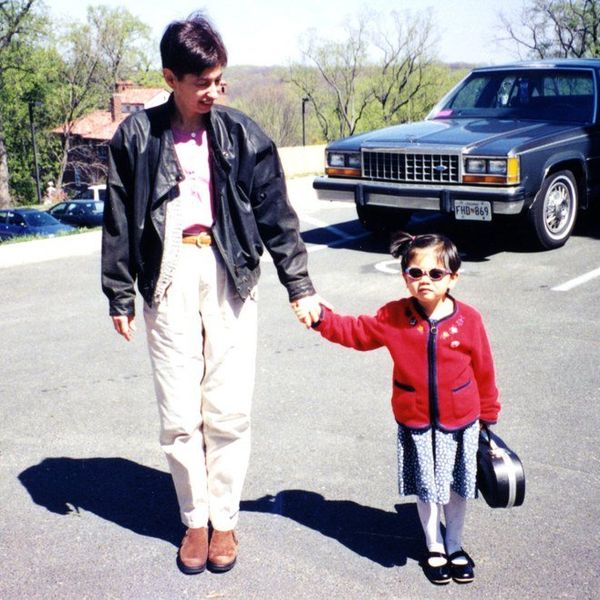I lived for 12 years in Beijing, and many people don’t know what Beijing is.
Many people I have encountered outside of China remember the capital of the PRC as Peking; this transliteration is clearly not derived from standard Mandarin or Beijing dialect, nor is it a standard Wade-Giles or Pinyin transliteration, two of the standard forms of romanization for Chinese. It turns out that the term Peking was coined by French missionaries, who, amongst spreading teachings of the Christian God, was also actively perpetuating imperialism, orientalism and colonialism on the poor Chinese peasants. The name Peking was eventually picked up by most Western European countries that almost ubiquitous exerted a sphere of influence in China and, when their demands were not met, promptly broke into war.
Peking became Beiping after 1911, the founding of the Republic of China, and after the founding of the People’s Republic of China was renamed Beijing. It has been christened many names by different rulers. Before the colonial Peking, it was Yan, Yanjing, Jicheng, Youzhou and (ironically) Nanjing, dubbed so because the Northern Capital was the Southernmost City to the Liao invaders from the north. The current Communist government of China insists that Beijing to referred to as only Beijing in foreign press.
I remember studying in France and feeling a little out of place when people insisted that I was from “Pékin;” the pronunciation was nothing like the nasally rolled Beijing dialect I grew up in and it was not a name that Beijing’s citizens would recognize. It was a name that was drummed into the ears of Chinese people then and now, rather forcefully; it was a name that white invaders and colonizers gave us, based off the Nanjing dialect of the 1600s, and for the sake of assimilation, we had to adopt. It continues to crown the English name of China’s Yale, Peking University.
Beijing is not the only capital China has had; China has also had a “New Capital” (Hsinking), coined by the Japanese and forced upon Changchun, then made the capital of the Japanese puppet-state of Manchukuo. After the Chinese Civil War, the name of Changchun’s province was changed from Kirin to Jilin, and the city of Dairen became Dalian. They were given new names, by a new government, adopting new ideology, starting a new life.
What I’m trying to say is, names matter. They are the most direct representation one could possibly have. Names reflect power, struggle, histories, pain, ideologies, hegemony. Names indicate who’s in charge and who’s not. Hsinking had to be renamed to Changchun not because some “coddled college kids” had to “find a safe space;” it is because people were exploited, and overworked, and dying, from Japanese colonialism. The Chinese Communist Party did not just insist that Beijing be referred to as Beijing to satisfy some “offended” students; the name-change is the active rejection of European colonialism, one of the many important steps the CCP took to impose its own nationalistic ideology. Names manifest the representations we would like to display to the outside world as social actors; they speak volumes about who and what we are.
Like many of my friends, I was surprised (but not really) at Yale’s decision to not rename Calhoun College. In the campus-wide email that President Salovey sent out, it was asserted that changing the name of Calhoun would be whitewashing history and glossing over a disgraceful heritage of Yale that should instead be preserved as a “history lesson.” Yet such a conversation has not yet been adequately carried out; before student protests last year I personally had very little idea who John Calhoun was, and even when the need to have such a conversation has arisen, there are very few faculty members to address these issues.
As we have seen, names are often representative of more profound forms of oppression and struggle; people die so that a name can be changed. States are adamant in preserving a name whose ideology best reflects the visions of the state. On the other hand, by keeping John Calhoun’s name, Yale is sending a message that Calhoun somehow embodies a vision of this campus that Yale is aspiring to—a vision that nominally calls for more student and faculty diversity and building a stronger curriculum of ethnic studies. Considering Calhoun’s status as a white supremacist and an advocate for slavery, I cannot even begin to fathom how these two visions can possibly coexist on Yale’s campus. By preserving Calhoun’s name on that stone slab on top of the Calhoun gates, Yale is sending a certain kind of message to its students, that even today slave masters and racists can still occupy a place of privilege by having their names consecrated in a space that is supposed to foster a tolerant and supportive community. Yale is excusing a fierce advocate of slavery for the limits of his time, much like how many white men today can still get away with racism, sexism and bigotry while people of color suffer.
As an international student from China, I’m fully aware that I occupy a place of privilege, enabled by the model minority myth. The pains, sufferings and discriminations many of my PoC friends go through on a daily basis, I cannot even begin to imagine, let alone truly understand. Since my ancestors as a collective people have probably not been enslaved in the same way that African Americans were, the name John Calhoun would never quite bear the same weight to me as to my black friends. Yet I distinctly remember my unease, and even resentment, when people I met here or in Europe correct me and insist on calling my hometown Peking, or my friend’s home Dairen and Kirin—names that are not only the product but also the embodiment of imperial exploitation and oppression. To hear even once someone with more hegemonic power imposing their worldview upon yours and invalidating your experience is a traumatizing experience; Yale is doing this on a daily basis to its PoC students, by assuming they don’t know any better, and that the Yale Corp—made up of exclusively white men—is the arbiter of what constitutes an adequate “history lesson.”
Finally, I doubt that reserving Calhoun’s name alone would suffice as a reminder for future generations, and I doubt that the preservation of an antiquated name is the most effect approach. Calling my hometown by its name from the Ming Dynasty has not erased the history of the city; on the other hand, I’m painfully aware of its history and its sufferings up to this day, thanks to conversations with my parents, city walks and some amazing history/sociology/East Asian Studies classes I have taken here. As a result, were Yale’s missions really to offer a history lesson, expansions of the ethnic studies departments, tenure for PoC faculty, increased funding for traditionally marginalized disciplines and increased publicity for ethnic studies all appear to be more effective options than branding an entire community with a slavery advocate’s name. In the meantime, let’s listen to the students and allow them to live and thrive in a community that doesn’t bear a name of their greatest oppressor.





















